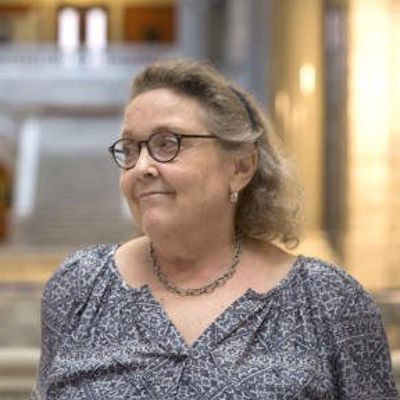”Times and places convenient to the public” is a legal fiction to Kentucky lawmakers.
Courier Journal columnist Joe Gerth channels the letter and spirit of the open meetings law in his analysis of the decision of the legislative task force examining the future of the Jefferson County Public Schools to conduct its meetings at times that effectively exclude large swaths of the public affected by the task force’s charter and in a place some 50 miles from Jefferson County.
Designated the Efficient and Effective District Governance Task Force, the hybrid body of state and local members was established in the 2024 legislative session by House Joint Resolution 81 to “review current district governance and administration models of Kentucky’s school districts with student enrollment greater than 75,000; ... [a]ssess the need for alternative governance structures, operations, management, and policy models for districts with enrollment greater than 75,000; ... [and e]xplore options for the restructuring or reorganizing of school districts with an enrollment of over 75,000.”
It was “created by or pursuant to state or local statute, executive order, ordinance, resolution, or other legislative act.” “[A] majority of its governing body is appointed by a ‘public agency.’“ It is unquestionably a public agency as defined in the open meetings law.
It is therefore required by the open meetings law to conduct its meetings “at specified times and places which are convenient to the public.”
As recently as 2023, the Kentucky Attorney General affirmed a 2002 open meetings decision recognizing that “meetings conducted by local agencies at places outside of their jurisdictional borders are inconvenient to the public of those local jurisdictions.” In 23-OMD-065, the Attorney General determined that the Graves County Board of Education violated the open meetings law “when it conducted a special meeting at a location outside of its jurisdictional borders, which was not ‘convenient to the public’ of Graves County.”
What rationale supported these and other open meetings decisions interpreting KRS 61.820(1)?
In 2002, the Attorney General reasoned that the open meetings law:
“is premised on the legislative recognition ‘that the formation of public policy is public business,’ KRS 61.800, and the judicial recognition that ‘[t]he failure to comply with the strict letter of the law in conducting meetings of a public agency violates the public good.” Floyd County Board of Education v. Ratliff (1997).
“Anything, that tends to inhibit the public’s ability to freely attend local government agency meetings, including distance, is destructive of the rights granted to the public, and the duties imposed on public agencies, by the Open Meetings Act.”
Are these decisions squarely “on point?”
Perhaps not. The decisions are limited to local agencies serving local jurisdictions. But lawmakers regularly refer to the Efficient and Effective District Governance Task Force as the JCPS Task Force. Even they must acknowledge that the task force focus is primarily local, that it will directly affect parents and students within Jefferson County, and that conducting most of its meetings in Frankfort is an affront to the spirit and, arguably, the letter of the open meetings law.
If not a local public agency, the task force is a hybrid public agency that exists to address a local issue through the imposition of the state’s will.
Gerth refutes every argument advanced by lawmakers in support of their decision to remove these proceedings to Frankfort. Small chance his logic will persuade or deter them. Queried about these issues, task force co-chairman Sen. Michael Nemes was dismissive.
The public “can sit in the stands, but they’re not going to be able to participate in these meetings. We have our agendas,” Nemes said.
Bitter experience teaches us that Kentucky’s General Assembly — though a public agency for open meetings purposes under controlling law — regularly operates under a deeply offensive application of the “Do as I say, not as I do” public business model.
Once again, we ask:
“When did the legislature abandon any pretense of compliance with the open meetings laws, and when did Kentuckians abandon any expectation of compliance?”
And, once again, we admonish:
“There is only one thing more disturbing than the reality of lawmakers run amuck. That is the reality of lawmakers run amuck who are accountable through neither their meetings nor their records to the people they serve.
“That is our current reality.”
--30--








